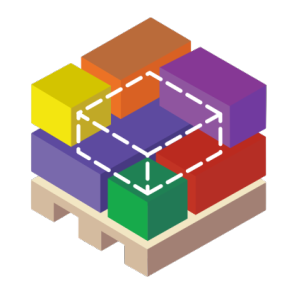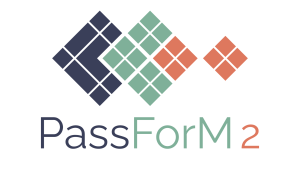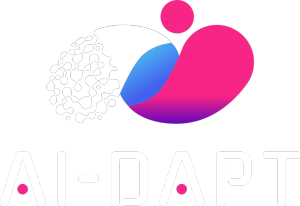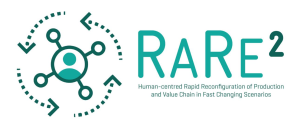Filter projects

AMR-Launch
Development of an augmented reality-based system for standardised commissioning and intuitive configuration of autonomous mobile robots
Duration 01.01.2026 - 31.12.2027, Funded by BMFTR
Show project description Hide project description
The research project “AMR-Launch” is developing an integrated, intuitive, cross-vendor system for commissioning and configuring autonomous mobile robots (AMRs). The aim is to make it easier for small and medium-sized enterprises in particular to use AMRs flexibly and to reduce their dependence on specialised personnel or external integrators. The system is based on AR-supported user environments, standardised AMR interfaces and an AMR abstraction layer. Operational staff can configure AMRs directly in the AR environment; automatic calibration synchronises the real environment, AR model and robot map. The approaches are being validated in practical application scenarios.
Contact persons
- B. Vur () (Project manager)
- L. Mittelsdorf ()
- L. Panter ()
Keywords
Robotics and automation, Human-technology interaction, Transport and logistics, Manufacturing industry, Autonomous robot and transport systems, AR / VR / Speech
SharePort
Resilient Smartport: Enhancing Supply Chain Robustness through Dynamic Resource Sharing
Duration
01.01.2026 - 30.06.2027,
Funded by BMFTR
Download PDF-Flyer
Show project description Hide project description
Ports are facing intense competitive pressure and must invest in automation and digitalization. Fluctuating utilization levels lead to resource shortages during peak periods and idle capacities during quieter phases. SharePort aims to increase the resilience of the port system through resource sharing. Port stakeholders can lend out temporarily unused resources at short notice to avoid bottlenecks and optimize capacity utilization. In addition to functional resilience, sharing promotes cooperation between companies, creates new synergies, and thus strengthens the structural and social resilience of the port community. The project will develop a prototypical digital platform for managing sharing transactions, as well as a simulation game for various sharing scenarios.
Contact persons
- G. Middelbeck () (Project manager)
- M. Teucke ()
Keywords
System development and planning, Maritime economy, Transport and logistics, Serious gaming and gamification, Digital platforms / IoT
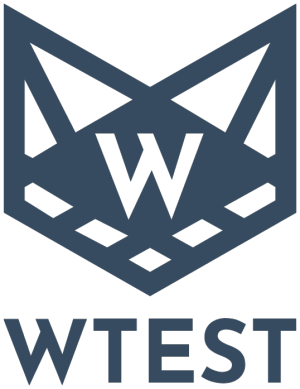
WTEST
Knowledge-based test management for test cases
Duration
01.11.2025 - 31.10.2027,
Funded by BMWE
Download PDF-Flyer
Show project description Hide project description
The goal of the project is to develop an interoperable and scalable framework for integrating test knowledge into everyday testing activities. This test knowledge will be embedded into the test processes of complex mechatronic systems through a copilot.
The background is that experience and engineering judgment play a crucial role in selecting and implementing test cases. Therefore, the framework will develop innovative, knowledge-based methods to support the creation of test scripts. This will enable OEMs and suppliers to semantically capture test cases and use the information in a task-specific manner.
Task-specific provision of information will be realized through the copilot, which will be integrated into Razorcat’s testing tools. The advantage of the developed copilot is that its suggestions are deterministic, reproducible, and traceable, thereby ensuring compliance with the guidelines for testing safety-critical systems.
Contact persons
- M. Franke () (Project manager)
- K. Hribernik ()
Keywords
Product and process development, Aviation, Assistance systems, Semantic modelling and ontologies
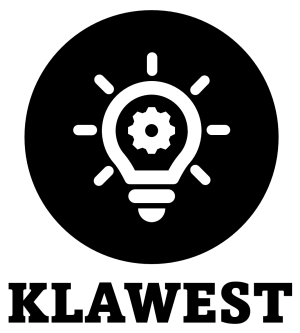
KLAWEST
Skills transfer, learning support and working cultures for responsive, dynamic value creation structures
Duration
01.11.2025 - 31.10.2026,
Funded by BMBF
Download PDF-Flyer
Show project description Hide project description
Germany has some catching up to do when it comes to continuing education. Recent studies show that only a small proportion of the 25- to 64-year-olds in Germany participate in formal education programmes – significantly less than the EU average. Concepts such as learning-friendly work environments and learning ecosystems offer the potential to overcome this continuing education crisis. However, they must be combined with value creation dynamics, such as technological development and work culture, to ensure optimal skills transfer. Against this backdrop, KLAWEST is looking for research needs for skills development in a business context at manufacturing and logistics companies.
The aim of the preliminary scientific study is to develop four different consistent descriptions of the future in the areas of skills transfer, new approaches to learning support and changing work cultures. The foresight process is based on a tailor-made method. This is based on scenario management, a process for the structured development and interpretation of possible future scenarios, and is carried out by a team of experts. The results of this process are validated and expanded using a Delphi method, a multi-stage sequence of consecutive expert surveys.
Contact person
- H. Duin () (Project manager)
Keywords
Digitalisation, Value creation networks, Research and development, Training & qualification
WeR3t-Netze
Regional value creation networks for Resilience and Resource conservation
Duration
01.11.2025 - 31.10.2026,
Funded by BMFTR
Download PDF-Flyer
Show project description Hide project description
In the absence of established sustainable business models, the potential of the circular economy often remains untapped. WeR³t-Netze is investigating how small and medium-sized enterprises (SMEs) in particular can create synergies, make optimal use of local resources, and increase their resilience in regional networks with innovative services and business models. The aim is to derive the corresponding research needs from a concrete vision of the future for sustainable value creation in the region through a strategic review. In its sub-project, BIBA is responsible for project management and the organization of the backcasting process and the transfer of results.
Contact person
- S. Wiesner () (Project manager)
Keywords
Value creation networks, Sustainability, Manufacturing industry, Services industry, Business models, Knowledge transfer
StackPack
Sequence and stability-optimizing algorithm for pallet and load carrier assembly of heterogeneous goods
Duration
01.07.2025 - 30.06.2027,
Funded by BMWK / IGF
Download PDF-Flyer
Show project description Hide project description
The shortage of skilled workers and increasing economic pressure pose particular challenges for SMEs and necessitate support. Existing solutions for automated load carrier planning inadequately consider extended constraints. Scientific approaches mostly offer only mathematical models, but no applicable and freely available implementation. The aim of the project is to develop an algorithm that incorporates practically relevant constraints and is made available as an open-source library. A user-centered demo demonstrates the application with custom load carriers and objects by outputting stable stacking patterns, filler parts, and securing measures.
Contact persons
- L. Mittelsdorf () (Project manager)
- N. Jathe ()
Keywords
MycelCreation
Creation of a participatory community for experimenting with mycelium based composites
Duration
01.06.2025 - 31.05.2026,
Funded by VolkswagenStiftung
Download PDF-Flyer
Show project description Hide project description
The MycelCreation project provides easy-to-understand knowledge about circularity in everyday life using products made from mycelium based composite materials as practical example. This involves creating spaces for participation, both in practice-oriented workshops on site and via a digital community platform. In the workshops, products made from mycelium based composites are manufactured and knowledge about integration into a circular process is shared. The aim is to build a participatory community for discussion and exchange in order to develop new ideas for implementing mycelium-based solutions. The aim is to raise participants' awareness of resource conservation and promote an understanding of a circular economy in society.
Contact persons
- B. Pupkes () (Project manager)
Keywords
Product and process development, Sustainability, Energy and environment, Knowledge transfer
MeisterWaerme
AI Assistance System for the Plumbing-Heating-Air-Conditioning (SHK) Trade to boost Process and Workforce E ciency through Knowledge-Based Maintenance of Thermal-Technology Systems
Duration
01.05.2025 - 30.04.2028,
Funded by BMWK / IGF
Download PDF-Flyer
Show project description Hide project description
The project’s centerpiece is an AI assistance system for the plumbing, heating and air-conditioning (SHK) trade that boosts process and workforce efficiency through knowledge-based maintenance of thermal-technology systems (e.g., heat pumps). By markedly improving first-time fault diagnosis and automating both repair and job preparation, the system aims to cut unproductive initial inspections and failed repair attempts—such as those caused by missing spare parts. To achieve this, plant data, maintenance documents (work reports, inspection protocols, maintenance checklists, etc.) and available remote-maintenance and smart-metering data are analyzed across companies and vendors using platform technologies, then transformed into knowledge representations for the AI assistant.
The BIBA as part of the project focuses on developing a semantic mediator middleware for data acquisition and transformation. In addition, a probabilistic workforce-scheduling module will be implemented to enable more efficient resource allocation within companies.
Contact persons
- R. Hellbach () (Project manager)
- K. Hribernik ()
Keywords
Digitalisation, Energy and environment, Construction industry, Process modelling and simulation, Semantic modelling and ontologies
LUKIE
AI-based estimations of energy demand related to industrial facilities in early phases of planning projects under application of meshfree methods
Duration
01.04.2025 - 31.03.2027,
Funded by BMWK
Download PDF-Flyer
Show project description Hide project description
Industrial building projects such as renovation, repurposing, or new construction face challenges in accurately estimating future energy demands. Conventional “rule of thumb” values are often imprecise, while detailed simulations in early planning phases are too complex and data-intensive, leading to discrepancies and additional costs. The LUKIE project aims to develop an AI-based estimator that reliably predicts the energy needs of both the building and the production and logistics facilities it contains at an early stage. To achieve this, a system taxonomy with various application scenarios is created, using simulation models to generate energy profiles for different configurations as training data for the AI. Later, real-world data will also be incorporated. BIBA focuses on developing a catalog of energy consumptions for machines and processes, as well as modeling and simulating relevant production and logistics processes.
Contact person
- H. Stern () (Project manager)
Keywords
Sustainability, Energy efficiency, Energy and environment, Transport and logistics, Process modelling and simulation, Machine learning / artificial intelligence



SimuHeat
Development of an efficient simulation tool for the design of CO2-neutral energy systems based on innovative Heatrix technology for energy-intensive industries
Duration
01.04.2025 - 30.09.2026,
Funded by Land Bremen / EFRE / Förderung anwendungsnaher Umwelttechniken (PFAU), kofinanziert über EFRE
Download PDF-Flyer
Show project description Hide project description
The project SimuHeat aims at the development of an efficient simulation tool that can be used for energy-intensive production processes to design CO2-neutral, hybrid energy systems based on the innovative Heatrix technology (Power-to-heat). This is intended to help determine and optimize system behavior.
Contact person
- I. Westphal () (Project manager)
Keywords
Sustainability, Energy efficiency, Food industry, Manufacturing industry, Process modelling and simulation

SAILEX
Sales and operations intelligence with explainable AI
Duration
15.02.2025 - 15.08.2026,
Funded by Land Bremen / FEI
Download PDF-Flyer
Show project description Hide project description
The project aims to develop an AI-based analysis tool for ERP systems that combines sales data with internal and external factors. This will not only enable general sales trends to be recognised, but also individual correlations, such as discounts or external influences such as weather and political events. This helps to create more precise purchasing forecasts, avoid bottlenecks and reduce excess stock and reduce excess stock, which saves storage costs. In addition, a large language model is also used to explain the AI forecasts in order to ensure the traceability decisions, supported by explainable AI approaches.
Contact person
- S. Leohold () (Project manager)
Keywords
Digitalisation, Sustainability, Services industry, Trade and commerce, Assistance systems, Machine learning / artificial intelligence
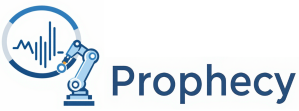
Prophecy
Prognostic Model Selection for Predictive Maintenance and an Integrated Reinforcement Learning-based Production Scheduling in Dynamic Manufacturing Systems
Duration
01.02.2025 - 31.01.2027,
Funded by DFG
Download PDF-Flyer
Show project description Hide project description
This research project is a collaboration between the Bremer Institut für Produktion und Logistik (BIBA) at the University of Bremen, Germany, the Federal University of Rio Grande do Sul (UFRGS), Brazil, the Federal University of Santa Catarina (UFSC), Brazil, and the Federal University of Amazonas (UFAM), Brazil.
The goal of this project is to develop a self-adaptive model selection method for predictive maintenance that is fully integrated into production and maintenance planning. To achieve this, a machine learning-based approach will be developed, enabling the automated selection of suitable prognostic models for different system configurations and conditions. A key aspect is the incorporation of reinforcement learning for the dynamic optimization of machine availability and utilization in real time. This is based on a digital representation of the production system, which allows for the evaluation of decision impacts using production logistics KPIs. This performance assessment enables targeted feedback between meta-learning and reinforcement learning, contributing to the continuous improvement of the system.
A key aspect of the project is the integration of reinforcement learning to dynamically optimize machine availability and utilization in real time. This is based on a digital representation of the production system, allowing the assessment of decision impacts using production logistics KPIs. The continuous feedback loop between meta-learning and reinforcement learning facilitates the ongoing improvement of the system. To validate the developed methods, a simulation-based environment will be created, which replicates the relevant production and maintenance processes with the required level of abstraction. Finally, the developed system will be tested in two industrial use cases in Germany and Brazil.
Contact persons
- R. Caballero Gonzalez () (Project manager)
- E. Broda ()
Keywords
System development and planning, Process optimisation and control, Automotive, Process modelling and simulation, Machine learning / artificial intelligence
Smartport Living Lab
Reactive, intelligent condition monitoring of the harbour superstructure
Duration
29.01.2025 - 31.12.2028,
Funded by Land Bremen / EFRE / EFRE-Bremen 2021 - 2027 (FKZ: 265/PF_BIBA_SMARTPORT/2025)
Download PDF-Flyer
Show project description Hide project description
The ‘Smartport Living Lab’ project addresses the challenges facing Bremen's ports in competition with the North Range ports. The aim is to develop innovative systems for a connected and sustainable port industry in Bremen/Bremerhaven. Flying drones and autonomous mobile robots are key technologies at BIBA for innovative condition monitoring solutions. These technologies are developed and tested in decentralised living labs, supported by a Smart Cooperation Platform that promotes collaboration between the participating research institutions and partners. The project strengthens the sustainable competitiveness and growth potential of the port locations and represents Bremen's innovative strength in maritime logistics.
Contact persons
- M. Lütjen () (Project manager)
Keywords
Robotics and automation, Digitalisation, Maritime economy, Transport and logistics, Autonomous robot and transport systems, Machine learning / artificial intelligence
PiQASO
Post-Quantum Cryptography As-a-Service for Common Transmission Systems and Infrastructures
Duration 01.01.2025 - 31.12.2027, Funded by EU - DIGITAL-ECCC-2024-DEPLOY-CYBER-06-PQCINDUSTR
Show project description Hide project description
The PiQASO project addresses the urgent need for quantum-resistant cryptographic solutions to secure critical infrastructures and data in the face of advancing quantum computing threats. As quantum capabilities mature, existing cryptographic methods risk becoming obsolete, jeopardizing the confidentiality and integrity of sensitive information. PiQASO’s primary goal is to deliver agile, scalable, and practical Post-Quantum Cryptography (PQC) solutions that seamlessly integrate into legacy systems without requiring additional specialized hardware.
The project introduces “PQC as a Service” (PQaaS), providing operational implementations of NIST-standardized algorithms like Dilithium, FALCON, and SPHINCS+. PiQASO enables robust encryption, authentication, and identity management across diverse industries, offering flexibility through crypto agility—adaptation to evolving cryptographic needs. The project emphasizes the secure execution of PQC, incorporating programmable accelerators to optimize performance while maintaining resistance to physical and side-channel attacks.
BIBA will provide a comprehensive demonstration scenario - a safeguarding aviation testing infrastructure. It will show how a Distributed Hardware-in-the-Loop (HIL) testing in aerospace will benefit from secure communication channels fortified by PQC, ensuring real-time responsiveness (<100ms) and protecting intellectual property. Through these advancements, PiQASO aims to establish a sustainable path toward quantum-secure critical systems, fostering trust and resilience in a rapidly evolving technological landscape.
Contact persons
- K. Klein () (Project manager)
- K. Hribernik ()
Keywords
LAMAsense
INTEK - LAMAsense / Entwicklung eines digitalen Zwillings für die Instandhaltung und einer Service-Plattform als Nutzerschnittstelle
Duration
01.01.2025 - 31.12.2026,
Funded by BMWK
Download PDF-Flyer
Show project description Hide project description
Contact persons
- M. Kreutz () (Project manager)
- M. Unger ()
Keywords
Digitalisation, Agriculture, Machine learning / artificial intelligence, Digital twin
SIM-TWIST
Development of a simulation environment for automated terminal operation concepts with special consideration of automated twistlock handling
Duration
01.01.2025 - 31.12.2026,
Funded by BMDV
Download PDF-Flyer
Show project description Hide project description
Twistlocks are mechanical locking elements that are used to secure containers on ships. The current manual handling of twistlocks is time-consuming and poses risks to occupational safety. The research project SIM-TWIST investigates how automated twistlock handling systems (ATS) could be used in container terminals. A simulation environment is being developed and used to derive specific recommendations for the use of ATS. The benefit is the reduction of technical and economic risks in the future use of ATS and the promotion of the market maturity of such systems. This can increase efficiency, safety and profitability of container terminals.
Contact person
- S. Schukraft () (Project manager)
Keywords
Robotics and automation, Process optimisation and control, Maritime economy, Process modelling and simulation
SPorT
Smartport Transfer – Coopetition in the Ports of Bremen as an Innovation Booster on the Way to Smartports
Duration
01.01.2025 - 31.12.2028,
Funded by BMFTR
Download PDF-Flyer
Show project description Hide project description
The SPorT project – Coopetition in the Ports of Bremen as an Innovation Booster on the Way to Smart Ports – brings together leading players in the ports of Bremen to strengthen the competitiveness of Bremen Ports. By establishing an innovation community with partners from research and practice, joint innovative projects relating to the port of the future can be initiated and implemented. The innovation community focuses on the areas of human centricity, coopetition and resilience. ‘SPorT’ thus contributes to the competitiveness of the ports of Bremen and taps into potential through cooperation between research, practice, and other players.
Contact persons
- M. Freitag ()
- D. Keiser ()
- G. Middelbeck ()
Keywords

NaBeMi
Development of a Quality Control Loop-Based Assistance System for Sustainable Resource Planning in Manual and Hybrid Assembly
Duration
01.11.2024 - 31.10.2026,
Funded by BMWK / IGF
Download PDF-Flyer
Show project description Hide project description
The NaBeMi research project addresses the growing importance of sustainability in consumer behavior and the challenges SMEs face in achieving sustainability goals in production. The aim of the project is to develop a methodology for sustainable resource planning that considers environmental, economic and social aspects. A web-based support system supports the resource planning process for manual and hybrid assembly systems. The methodology integrates three quality control loops to resolve conflicts between traditional and sustainability objectives, enabling comprehensive resource planning. This approach analyzes trade-offs and ensures high quality planning.
Contact persons
- D. Schweers () (Project manager)
- D. Keiser ()
Keywords
System development and planning, Sustainability, Manufacturing industry, Assistance systems
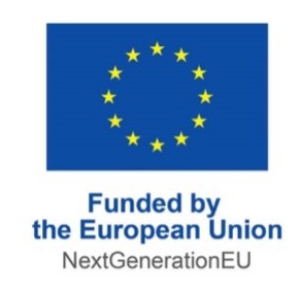
Wind-X
Conceptualisation, implementation and demonstration of interoperable solutions for traceability and digital twins in the wind industry
Duration
01.11.2024 - 31.07.2027,
Funded by BMWK / NextGenerationEU
Download PDF-Flyer
Show project description Hide project description
The Wind-X project aims to promote the wind industry through a data ecosystem for innovative and sustainable wind turbines over their entire life cycle. Experience, technologies and solutions from Catena-X, Gaia-X and other Manufacturing-X initiatives will be transferred to the wind industry. The aim is to develop data-driven solutions and software services specifically for the wind industry. Intelligent wind turbines and components prepared for digitalisation with standard-compliant asset administration shell sub-models are intended to support this. These digital twins will be equipped with configuration and communication capabilities as well as data room connectors. In addition, value-added services (‘business applications’) are being developed that utilise raw data from the supply chain for industry-specific use cases. Connectors and basic services serve as the infrastructure for operating the value-added services and enable interoperable data rooms. This will be demonstrated using the two use cases ‘Traceability for Sustainability and Logistics’ and ‘Digital Twin in the Production and in the Field’ for the wind industry.
BIBA's main objective is to coordinate and develop these two use cases. In particular, the focus here is on specifying the information requirements, clarifying the framework conditions, defining and deriving business mechanisms and identifying relevant data sources and sinks. Building on this, BIBA and its partners will drive forward the concept development and implementation of sub-models and the data integration of the superordinate data space. BIBA will then support the development of data room services for querying and transferring data from the sub-models for both use cases. BIBA will then develop a demonstrator for both use cases.
Contact persons
- J. Uhlenkamp () (Project manager)
- E. Broda ()
- K. Burow ()
- S. Eberlein ()
- M. Franke ()
- K. Hribernik ()
Keywords
Digitalisation, Interoperability, Wind energy, Digital twin, Digital platforms / IoT
SanAssist
Development of AI speech intelligence for customer service in the sanitary sector within BIM framework
Duration
01.11.2024 - 31.10.2026,
Funded by BMWK
Download PDF-Flyer
Show project description Hide project description
The SanAssist project aims to significantly improve the digitalization of customer service in the sanitary sector through innovative methods of optical image and video analysis, as well as AI-based voice solutions. In light of the existing shortage of skilled workers, an intelligent system is being developed that automates the processing of customer inquiries and increases efficiency by handling simple queries and tasks through automated responses, cost estimates, and product suggestions at the Level 1 support level. The BIBA sub-project includes the preliminary classification of email attachments as well as image-based object recognition of SHK parts. By integrating multiple technologies such as machine learning and image-based object recognition, a novel workflow is created that enables the automated extraction of text and image information. Expert evaluations and customer surveys conducted in collaboration with project partners will ensure the quality of the developed solution with the aim of sustainably optimizing customer service and interaction in the sanitary sector.
Contact persons
- H. Stern () (Project manager)
- W. Zeitler ()
Keywords
Digitalisation, Construction industry, Machine learning / artificial intelligence, AR / VR / Speech
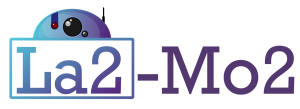
La2-Mo2
Development of an LLM pipeline for processing and transforming natural language commands into context-dependent robot commands
Duration
01.10.2024 - 30.09.2026,
Funded by BMWK
Download PDF-Flyer
Show project description Hide project description
The assembly industry faces increasing product variety and customization, which demands production flexibility, complicating Cobot automation, especially for SMEs. Despite Cobot market growth, frequent reconfiguration remains a challenge. Natural language programming could simplify this, but current models lack contextual understanding and precision.
The La2-Mo2 project aims to develop a system that uses LLMs for programming Cobots through natural language. By interpreting spoken instructions and converting them into precise robot commands, the system will make Cobot programming more accessible, reducing complexity and increasing flexibility, particularly benefiting SMEs in assembly processes.
Contact persons
- J. Liebchen () (Project manager)
- N. Meusel ()
Keywords
Robotics and automation, Human-technology interaction, Manufacturing industry, Assistance systems, Machine learning / artificial intelligence

iCRANE
Development of a mobile assistance system to increase the safety of heavy-duty cranes by means of sensory and optical monitoring and verification of assembly
Duration
01.09.2024 - 31.08.2026,
Funded by BMWK
Download PDF-Flyer
Show project description Hide project description
The use of cranes is planned on a customer-specific basis and therefore order-related. The selection and overview of the availability of attachments at the depot or across several operating sites depends on the crane rental company's experience and individual inventory management. On the construction site, the delivery, positioning and assembly of the crane components requires a great deal of coordination. The load-bearing capacity of the crane depends in particular on the correct assembly of the attachments, which must be carried out in accordance with the previous planning of the crane deployment. Incorrect assembly jeopardizes the safety of the crane operation and, in the worst case, can lead to the crane toppling over. With this in mind, this project is developing a mobile assistance system to increase crane safety and support the coordination of employees at the depot and on the construction site. The system is divided into three sub-areas: (1) optimization of component control at the depot and construction site, (2) verification of the planning-compliant design of a mobile crane with regard to operational safety and (3) recording and analysis of loads on individual components.
Contact persons
- M. Quandt () (Project manager)
Keywords
Digitalisation, Process optimisation and control, Services industry, Construction industry, Assistance systems, Wireless communication technologies (5G etc) and sensors
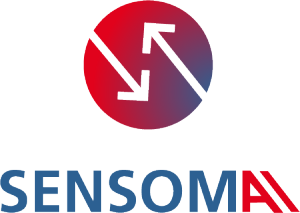
SENSOMAI
Sensor-supported AI-based benchmarking platform for the human-centred and economical selection and introduction of support systems in intralogistics processes
Duration
01.08.2024 - 31.07.2026,
Funded by BMBF
Download PDF-Flyer
Show project description Hide project description
Companies need to improve their production and intralogistics processes due to rising costs and increasing demands for flexibility. This requires a comprehensive process analysis, which is very time-consuming. Small and medium-sized enterprises (SMEs) in particular struggle to select suitable technologies for intralogistics solutions. The goal of the SENSOMAI project is to develop a user-friendly data platform that supports SMEs in selecting and implementing intralogistics systems. This platform utilizes motion data collected by sensors and analyzes it using a deep learning method. The platform identifies optimization potentials and suggests appropriate intralogistics solutions. A before-and-after comparison allows the evaluation of improvements within the company. The platform continuously enhances its recommendations through the validation of results. SENSOMAI is an innovative solution that offers technology-neutral selection options and addresses multiple user groups.
Contact persons
- L. Rolfs () (Project manager)
Keywords
Digitalisation, Process optimisation and control, Transport and logistics, Manufacturing industry, Assistance systems, Digital platforms / IoT
PassForM2
Process-Driven Adaptation of Agent-Based Control for Modular Assembly Systems
Duration
01.08.2024 - 31.07.2026,
Funded by BMWK / IGF
Download PDF-Flyer
Show project description Hide project description
The shift from mass production to customized manufacturing presents immense challenges for companies, particularly in assembly, which accounts for more than half of the production time and 20% of the costs. For small and medium-sized enterprises (SMEs), easily scalable solutions are essential. SMEs benefit especially from flexible systems, as these allow them to adjust their production processes efficiently without investing in expensive, specialized equipment.
PassForM2 develops an innovative control system for modular assembly systems that can adapt flexibly to changing requirements. In addition to assembly, other systems such as automated guided vehicles (AGVs) can be seamlessly integrated. Through interchangeable hardware modules and decentralized control, we increase efficiency, reduce production costs, and ensure greater resilience against system failures. This technology helps SMEs achieve sustainable small-batch and series production while enhancing their competitiveness by enabling them to respond cost-effectively and adaptively to market changes.
Contact persons
- B. Vur () (Project manager)
- N. Meusel ()
Keywords
Robotics and automation, Interoperability, Manufacturing industry, Research and development, Autonomous robot and transport systems, Digital twin
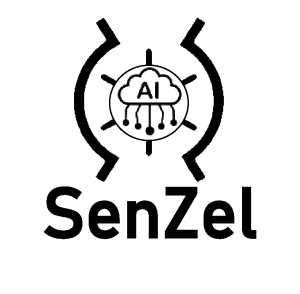
SenZel
Development and implementation of AI-supported monitoring and analysis technologies for rotary valves
Duration 01.07.2024 - 30.06.2026, Funded by BMWK / IGF
Show project description Hide project description
Rotary valves are used in industrial plants for shutting off, discharging or volumetric dosing of bulk materials. They prevent dust and gases from escaping. Maintenance poses a challenge, as rotary valves are subject to heavy wear and are usually not easily accessible. The aim is to increase efficiency by reducing downtimes and optimising maintenance costs with artificial intelligence.
Contact person
- M. Lütjen () (Project manager)
Keywords
Robotics and automation, Chemical and raw materials industry, Machine learning / artificial intelligence, Digital platforms / IoT
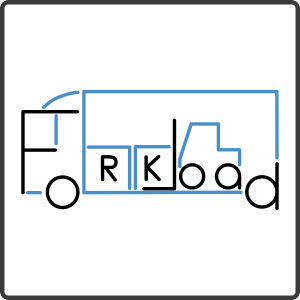
ForkLoad
Autonomous pallet loading using an external sensor and control system for retrofitting forklift trucks
Duration
01.07.2024 - 30.06.2026,
Funded by BMWK
Download PDF-Flyer
Show project description Hide project description
The aim of the project is to develop a retrofittable system to enable conventional electrically powered forklift to load pallets autonomously. BIBA is developing an external multi-sensor system and algorithms for vehicle and loading control, which communicates with a control module that will be integrated into the forklift.
Contact persons
- A. Börold () (Project manager)
- J. Liebchen ()
Keywords
Product and process development, Robotics and automation, Transport and logistics, Autonomous robot and transport systems, Machine learning / artificial intelligence
IdEaL MF
Interdisciplinary Energy Research Laboratory IdEaL MF
Duration 01.07.2024 - 31.08.2028, Funded by Land Bremen / EFRE / EFRE-Programm 2021-2027 Bremen (FKZ: 265/PF_BIBA_IdEaL-MF/2024)
Show project description Hide project description
The Interdisciplinary Energy Research Laboratory (IdEaL MF) project, which is co-financed by the European Union, aims to expand research and innovation capacity and research and development infrastructures and introduce advanced technologies. The expansion of the energy research infrastructure is being carried out using the university campus as an example, with the energy-self-sufficient and IoT-based model factory (MF). This will consist of various production technologies, systems and technologies for energy generation, energy conversion and energy storage, as well as innovation areas and an AI control centre. The model factory will enable the systematic combination of sector-coupled energy research with production research for the development of innovative results and the deepening and expansion of core competencies in the areas of technologies, methods, products and processes. Funding for the project in the amount of 2.194.000 € will be provided by the European Regional Development Fund (EFRE) from the „Programm EFRE – Bremen 2021-2027“.
Contact person
- J. Hörnschemeyer () (Project manager)
Keywords
System development and planning, Energy efficiency, Energy and environment, Research and development, Training & qualification, Knowledge transfer

SMART
Dynamic control of collaborative assembly in the digital twin using AR and AI-based situation recognition
Duration
01.06.2024 - 31.05.2026,
Funded by BMWK
Download PDF-Flyer
Show project description Hide project description
The goal of the SMART cooperation project is to develop an overall system for the dynamic control and task allocation of collaborative assembly processes. For this purpose, the implementation of an AI-based situation recognition using AR devices, which, together with a software platform for dynamic work planning, forms the basis for intelligent and collaborative process and robot control. An AR visualization is being developed for the direct involvement of employees, which shows the process planning and the planned robot actions in real time and thus enables close human-robot collaboration. A digital twin is used to integrate, simulate and control all subsystems.
Contact person
- E. Harlan () (Project manager)
Keywords
Robotics and automation, Human-technology interaction, Automotive, Manufacturing industry, Autonomous robot and transport systems, AR / VR / Speech
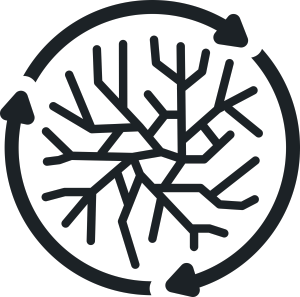
MycelCycle
Integrated material, process and product development methodology for product life-cycle optimized mycelium-based packaging products as part of circular economy
Duration
01.02.2024 - 31.01.2028,
Funded by Volkswagen Stiftung
Download PDF-Flyer
Show project description Hide project description
Sustainable and closed material cycles made from biogenic and recycled resources are becoming increasingly relevant as raw materials become limited. The goal of the project is to develop an integrated methodology for the material, process, and product development of mycelium composite materials using the example of cooler boxes. Mycelia has the potential to transform biomass with its thread-like hyphae into compact structures in just a few days. The project addresses current challenges in the product life cycle in order to design optimized material cycles using mycelium technology. The research framework includes the use of AI-based methods for identifying material combinations and for quality assurance.
Contact persons
- B. Pupkes () (Project manager)
Keywords
Product and process development, Sustainability, Energy and environment, Manufacturing industry, Machine learning / artificial intelligence, Life cycle assessment
AutoLog
Development of autonomous driving processes and dynamic storage and logistics concepts on automotive terminals
Duration
01.01.2024 - 31.12.2026,
Funded by BMDV
Download PDF-Flyer
Show project description Hide project description
The logistics services provided by seaports and inland ports are crucial for German imports and exports and for the global distribution chains of the German automotive industry. Vehicle compounds serve as hubs that are an integral part of the German automotive industry's finished vehicle logistics. Despite this central role, vehicle compound operators face challenges such as increasing handling volumes, limited terminal space, staff shortages and growing demands for efficiency and flexibility.
The AutoLog research project aims to explore and realise optimisation potential through the use of automated driving at vehicle compounds. The project aims to increase the efficiency and flexibility of terminal operations through technological developments for the digitalisation of processes and the automation of driving movements.
The main objectives of the project are
Suitability of automated driving at vehicle compounds: Investigation of the process and infrastructure requirements at the vehicle compound for the successful implementation of automated driving.
Technical infrastructure and sensors: Developing the design of the technical infrastructure and sensor technology to ensure robust and safe vehicle control.
Human-machine interactions: Investigating how human-machine interactions can be designed to enable intuitive and safe interaction between automated and non-automated processes.
Optimisation potential for storage and logistics processes: Identification of optimisation potential for related storage and logistics processes through the introduction of automated driving.
By specifically researching and implementing these objectives, the AutoLog project aims to overcome the challenges of vehicle compounds and sustainably improve the future of finished vehicle logistics.
Contact persons
- S. Leohold () (Project manager)
Keywords
Human-technology interaction, Process optimisation and control, Maritime economy, Automotive, Process modelling and simulation, Wireless communication technologies (5G etc) and sensors
VR-VET
Virtual Reality network for VET providers
Duration 01.01.2024 - 31.12.2026, Funded by EU - Erasmus+
Show project description Hide project description
The VR-VET project aims to improve the non-destructive testing training methodologies through innovative pedagogical approaches and the development of an immersive vitual reality training platform.
At the core of the VR-VETproject is a commitment to advancing NDT training trough state-of-the-art technologies, the goal is to empower trainers with the tools and knowledge needed to cross the digital age effectively, while also promoting sustainability and inclusivity within the sector.
Contact person
- H. Duin ()
Keywords
Digitalisation, Manufacturing industry, Research and development, Serious gaming and gamification, AR / VR / Speech
AI-DAPT
AIOps framework to support and automate data and AI pipelines
Duration 01.01.2024 - 31.05.2027, Funded by EU - Horizon Europe
Show project description Hide project description
Today, Artificial Intelligence (AI) has paved a long way since its inception and has started experiencing exponential growth across various industries and shaping our world in ways that were once thought impossible. As AI transitions from research to deployment, leveraging the appropriate data to develop and evaluate AI models has evolved into one of its greatest challenges. Data are in fact the raw material and the most indispensable asset fuelling much of today’s progress in AI, generating previously unattainable insights, assisting more evidence-based decision-making, and bringing tangible business/economic benefits and innovation to all involved stakeholders. However, despite their instrumental role in determining performance, fairness, and robustness of AI systems, data are paradoxically characterised as the most under-valued and de-glamorised aspect of AI while a data-centric focus is typically lacking in the current AI research.
AI-DAPT aims to deliver an innovative and impactful research agenda that will provide tangible benefits to a variety of stakeholders that struggle with making AI services. Seeking to reinstate the pure data-related work in its rightful place, and reinforcing the generalizability, reliability, trustworthiness, and fairness of Al solutions, AI-DAPT vision relies on the implementation of an AIOps framework to support and automate AI pipelines that continuously learn and adapt based on their context. It enables proper purposing, collection, documentation, (bias) valuation, annotation, curation and synthetic generation of data, while keeping humans-in-the-loop across five axis: (i) Data Design for AI, (ii) Data Nurturing for AI, (iii) Data Generation for AI, (iv) Model Delivery for AI, (v) Data-Model Optimization for AI.
AI-DAPT brings forward a two-fold data-centric mentality in AI:
Data: AI-driven automation for data pipelines based on Explainable AI (XAI) techniques as well as synthetic data generation and observability.
Model: Automation on AI model building and hybrid science-AI solutions, bringing together data-driven AI models and science-based (first-principles) models that build on high-quality data.
Bridging the gap between data-centric and model-centric AI, AI-DAPT will turn over a new leaf in trustworthy AI and will nurture an ecosystem involving all AI and data value-chain stakeholders. The aim is to enhance their prosperous collaboration in order to deliver and apply innovative AI-driven methods that rely on smart and dynamic end-to-end automation of data, AI training/inference pipelines in the cloud-edge computing continuum.
To demonstrate the actual innovation and added value that can be derived through the AI-DAPT scientific advancements, the AI-DAPT results will be validated in two ways:
By applying them to tackle real-world challenges in four key industries: (4) Health, Robotics, Energy, and Manufacturing.
By integrating them into various AI solutions, whether open source or commercial, already present in the market.
Contact persons
- R. Hellbach () (Project manager)
- K. Hribernik ()
Keywords

DigiKleb
Digitization of gluing processes in the automotive industry
Duration
01.08.2023 - 31.07.2026,
Funded by BMWK
Download PDF-Flyer
Show project description Hide project description
Within the framework of the sub-project, research is being conducted on the development of methods and procedures for the analysis and prediction of system behavior, for example, in order to identify causes of quality deviations and to propose quality measures. For this purpose, the interdependencies are modeled first qualitatively and then quantitatively by means of so-called effect networks, whereby the data standards of the Asset Administration Shell and OPC-UA are used as a basis in order to establish compatibility and direct system integration in the digital twin.
Contact persons
Keywords
Digitalisation, Process optimisation and control, Automotive, Process modelling and simulation, Machine learning / artificial intelligence

RessourcE
Developing human resources in service work
Duration
01.07.2023 - 30.06.2028,
Funded by BMBF
Download PDF-Flyer
Show project description Hide project description
A competence center for logistics and health-related services will be established in the project in collaboration with practitioners and scientists. RessourcE intends to initiate sustainable transfer structures between research and practice and develop innovations for effective work design, leadership and opportunities for human resource development in the field of low-qualified work. Technical solutions for ergonomic work design and diversity-oriented competence development in low-qualified work are developed, piloted and tested regarding broad applicability. These solutions include, for example, assistance systems for physical work, concepts for supporting mental health, or software tools for systematic selection of suitable assistance technologies.
Contact persons
- B. Pupkes () (Project manager)
Keywords
Human-technology interaction, Maritime economy, Transport and logistics, Assistance systems, Training & qualification
MDZ-HB-OL
Mittelstand-Digital Centre Bremen-Oldenburg
Duration 01.04.2023 - 31.03.2026, Funded by BMWK
Show project description Hide project description
The Mittelstand-Digital Centre Bremen-Oldenburg pursues the goal of increasing the level of digitalisation of SMEs in the Northwest Metropolitan Region through individual support measures.
In addition to the classic manufacturing industry and production-related services such as logistics, the focus is also on the consumer-oriented service industry, such as tourism, gastronomy or the creative industry. The participation of the BIBA enables, among other things, the transfer of knowledge from the research projects to industry, the implementation of infrastructure and demonstrators, as well as the implementation of local events and online formats.
Contact persons
- A. Himstedt ()
- M. Knak ()
- A. Seelig ()
- M. Teucke ()
- S. Wiesner ()
Keywords
Digitalisation, Resilience, Training & qualification, Knowledge transfer
WASABI
White-label shop for digital intelligent assistance and human-AI collaboration in manufacturing
Duration 01.03.2023 - 28.02.2027, Funded by EU
Show project description Hide project description
WASABI aims at providing SMEs with the tools and knowledge to improve workers capacities and performance, providing advanced user interfaces for continuous augmented hybrid-decision-making. Such interfaces assist employees in interacting with complex software, effectively reducing its skill floor. In consequence, humans will find using software easier and be more open to applying it effectively at work. WASABI’s advanced interfaces will cover, for instance, situation analysis, intervention identification, action
planning and execution, and impact monitoring and mitigation. One of the key technologies in WASABI’s solution portfolio is the digital intelligent assistant (DIA) - an anthropomorphic, task-oriented AI with a conversational interface. A network of DIHs that will help boosting impact by guiding SMEs in this new path will be created and integrated within other existing DIH networks. Our customized, federated, white-label shop will include such DIAs and skill-packages to help organizations reach their sustainability goals. Blue-collar and white-collar workers will be capable of using it for hands-free or eyes-free computer-interaction, AI-based advice and guidance, and augmented analytics.
Contact persons
- S. Wellsandt () (Project manager)
- M. Foosherian ()
- K. Hribernik ()
Keywords
Human-technology interaction, Process optimisation and control, Chemical and raw materials industry, Manufacturing industry, Assistance systems, Machine learning / artificial intelligence
RaRe2
Human-centred Rapid Reconfiguration of Production and Value Chain in Fast Changing Scenarios
Duration
01.12.2022 - 31.05.2026,
Funded by EU - HORIZON-CL4-2022-TWIN-TRANSITION-01-01
Download PDF-Flyer
Show project description Hide project description
The European production landscape is facing major challenges that require sustainable and robust, but at the same time, highly efficient production systems that have the ability to respond to significant changes at high speed.
The global objective of the project RaRe2 is to create a flexible and resilient ecosystem platform enabled by the interaction of many European organizations that cooperate in the fast reconfiguration of process chains through collaborative systems and adaptable workforce upskilling.
In the project, digital twins of production and logistics systems augmented with forecasting, reconfiguration and optimization functions will be developed at different hierarchical levels along the entire value chain. In addition, methods for flexible and robust workforce planning will be developed. In the next step, the developed methods will be integrated in an ecosystem platform.
This research has been funded by the European Union's Horizon Europe Framework Programme (HORIZON) under project reference HORIZON-CL4-2022-TWIN-TRANSITION-01.
Contact persons
- S. Eberlein () (Project manager)
- K. Burow ()
- K. Hribernik ()
- S. Schukraft ()
- J. Uhlenkamp ()
Keywords
Value creation networks, Resilience, Transport and logistics, Manufacturing industry, Process modelling and simulation, Digital twin
hyBit
Hydrogen for Bremen’s industrial transformation
Duration
01.09.2022 - 31.08.2026,
Funded by BMBF
Download PDF-Flyer
Show project description Hide project description
The hyBit project plays a important role in the realization of the EU's goal of a climate-neutral economy by means of green hydrogen in a holistic energy transition. The overarching question of the project is: How can climate neutrality be achieved through the targeted technical, economic, ecological, legal and social design of hydrogen hubs? In five steps, pilot applications are defined via flexible modeling of logistics systems that run on hydrogen. For this purpose, transformation paths, infrastructure concepts and roadmaps will first be developed and simulated. The results and simulation performance will be made available to a central transformation platform, which will combine them with the results of other issues beyond mobility and logistics.
Contact persons
- L. Steinbacher () (Project manager)
- A. Ait Alla ()
- E. Broda ()
- D. Keiser ()
- S. Oelker ()
- M. Teucke ()
Keywords
Product and process development, Sustainability, Energy and environment, Transport and logistics, Process modelling and simulation, Life cycle assessment
Events:
February 25 to 27, 2026, Bremen
Digitalization at Lunchtime: Transparent Supply Chains
March 4, 2026, online
March 4 to 5, 2026, Wolfsburg
BIBA with LogDynamics at the LogisticsConnect 2026 Trade Fair
March 5-6, 2026, Bremen
Tag der Logistik 2026: Cybersicherheit für smarte Logistik
16. April 2026, BIBA, Bremen
More events


